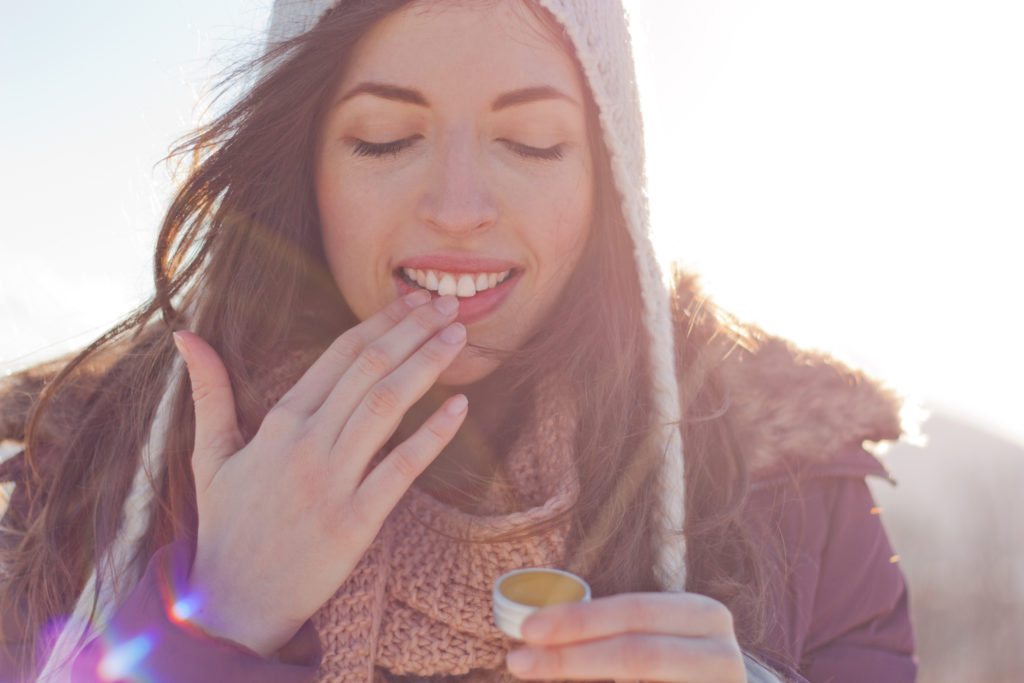
You may be a creature of habit, but your skin care routine might not be ideal year-round. The environment affects the way your skin behaves, so it is important to consider those factors when planning your skin care regimen.
Use this guide to help make changing your skin care routine as effortless as trees change leaves.
Autumn Skin Care Tips
 Autumn provides a fantastic opportunity for your skin to recover from the summer damage caused by the sun, salt water and chemicals like chlorine. However, as drier and colder air arrives, your skin loses moisture.
Autumn provides a fantastic opportunity for your skin to recover from the summer damage caused by the sun, salt water and chemicals like chlorine. However, as drier and colder air arrives, your skin loses moisture.
- Exfoliate. After a long summer, your skin may have lost its luster and appear dull due to a build up dead skin cells from sun damage. A delicate to mild product is recommended. In most instances, a mild acid serum performs best rather than a scrub. Try ingredients such as azelaic acid, lactic acid, or mandelic acid.
- Moisturize. The best time to apply moisturizing cream or lotion, is after a bath while the skin is clean and the follicles are relaxed. Don’t forget to use a moisturizer with SPF or apply a separate sunscreen. It may feel cooler outside, but the harmful rays of the sun are ever-present.
- Avoid over-cleansing. Limit cleaning your face to twice a day. During the summer it is usual to cleanse more often. Use the fall season as a break to allow the skin to produce the natural oils needed for healthy skin.
Winter Skin Care Tips
 Continue to gently exfoliate, but as the winter progresses cut back if you feel it’s becoming too irritating and drying. Focus on hydration and protection.
Continue to gently exfoliate, but as the winter progresses cut back if you feel it’s becoming too irritating and drying. Focus on hydration and protection.
- Hydrate. Add a quality hydrating serum to your regimen. Look for ingredients such as panthenol (vitamin B5), hyaluronic acid, and glycerin. Apply the serum after cleansing and always follow with a moisturizer to trap the hydration in your skin.
- Protect your lips. The winter wind is harsh and lips can become damaged quickly. Heavier lip balm with a high SPF is recommended. Look for products without a sweetener added – this will help to keep you from licking your lips and removing the balm. Try using calendula cream (at least 10%) to remedy very dry, chapped lips.
- Don’t forget your hands. Hands are the first part of your body to show age. Protect them through the winter months with a high-quality cream or oil and reapply regularly. A good product is a worthwhile investment. Oils like sweet almond oil and argan oil typically work best for hands.
- Wear protective clothing. Gloves and scarfs are valuable for more than their warmth. They protect skin from over-exposure to the harsh winter elements.
- Moisturize. Switch to a heavier moisturizer, especially when you’re spending time outdoors in cold weather. Oil-based creams can help to seal in hydration and prevent chapped skin. Look for products that are labeled as non-comedogenic (less likely to cause blackheads).
Spring Skin Care Tips
 If winter does a number on your skin, spring can be the perfect time to rehab and rejuvenate.
If winter does a number on your skin, spring can be the perfect time to rehab and rejuvenate.
- Exfoliate. Frosty cold can damage the outer layer of skin. Using a mild to moderate exfoliating product daily is essential in promoting fresh skin cell production.
- Switch to a lighter moisturizer. Continue to apply after cleansing with warm water for maximum absorption. High SPF remains integral. Look for a water-based product that contains antioxidant ingredients such as vitamin C.
- Spring clean. It’s the perfect time to throw out all your makeup, expired skincare products and thoroughly cleanse your brushes and applicators. Anything more than a year old needs to be tossed.
- Be mindful of allergies. Once spring is in full bloom, your skin may feel the effects of allergies. If you are experiencing symptoms such as swollen or watery eyes, skin rashes or itching, you may be experiencing an environmental allergy. See your doctor for advice on dealing with the source.
Summer Skin Care Tips
 Tanned skin means there has been damage from the sun. That means that there is really no such thing as a “healthy tan.” As the summer season usually means more outdoor activities, skin protection is key since sun exposure is the leading cause of premature aging in the skin.
Tanned skin means there has been damage from the sun. That means that there is really no such thing as a “healthy tan.” As the summer season usually means more outdoor activities, skin protection is key since sun exposure is the leading cause of premature aging in the skin.
- Protect. Use high-SPF and reapply often. One shot-glass full of sunscreen is the amount needed for one application to the entire body. Separate products should be used for the face and the neck. Don’t forget to use a high-SPF hand lotion, and lip balm as well. Wear protective clothing when possible, such as scarves, wide-brimmed hats, and sunglasses.
- Exfoliate less. Cleanse and moisturize more. Overuse of exfoliants during the summer months makes skin more susceptible to sun damage and premature aging. Some people may need to switch to a gel or foaming cleanser if they experience excess oily during the warm weather season.
- Be aware of sun damage. Everyone has some degree of prior sun damage to their skin. Keep track of changes in lesions like moles, freckles or patches of scaly skin as cancer can develop at any time, often years after the damage occurred. See your dermatologist if you notice any changes in the shape or appearance of these areas.
- Tan Safe. If you can’t bear the thought of having pale skin during the summer (or anytime of the year), consider the many alternatives to sunbathing and tanning. Airbrushed tans and self-tanners have come a long way. Professional applications can cost less than a year long tanning package. However, you must continue to use SPF no matter what shade of faux-tan you achieve.
Year-round Tips:
- Antioxidants are your friend! Boost topical use of antioxidant ingredients like vitamins C & E, resveratrol, lycopene, green tea, white tea, grapeseed extract, niacinamide, kakadu plum, ferulic acid, astaxanthin, and many more. Antioxidants fight free-radical damage caused by the sun and other factors which leads to premature aging like wrinkles and other skin concerns. Increasing your intake of brightly colored fruits and vegetables as well as dark leafy greens will raise your antioxidants levels as well. Everyone should use a daily antioxidant serum, applied in the morning for best results.
- Sunscreen. Yes, year-round. It doesn’t matter where you live or how often you’re outside, you need to wear a quality sunscreen with a minimum SPF of 30 on a daily basis to protect against free radical damage, skin cancer, and premature aging. We recommend a mineral/physical sunscreen that uses titanium dioxide and/or zinc oxide as the active ingredients.
- Hydrate. You always hear that you need to drink at least 8 glasses of water per day to maintain a healthy level of hydration in your body. What you don’t hear is, that’s not enough when it comes to hydrating your skin! Yes, you need to stay hydrated internally but a majority of that water won’t make its way to the skin. Make sure to use a quality hydrating serum on a daily basis. Choose a product with ingredients like panthenol (vitamin B5) or hyaluronic acid for best results. Even those with oily skin will benefit from these ingredients.
Things to Avoid:
- Abrasive scrubs
- Products containing a high percentage of alcohol or other harsh astringents
- Scrub mitts and loofahs
- Overly cold or hot water
- Harsh soaps
- Medicated washes and creams unless prescribed
- Cortisone creams are not recommended for consistent use on the face as they can cause the skin to permanently thin.
A great skin care routine can take you far and with a little fine-tuning you can enjoy year-round healthy, beautiful skin! Visit your esthetician for expert advice and a custom skin care regimen designed just for you.
Are you interested in learning even more about proper skin care and how you can help other people with their skin concerns? Call us today at (847) 329-9174 to find out how you can become an Estelle-trained esthetician.



